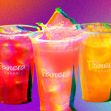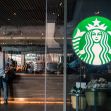Social media influencer turned professional wrestler Logan Paul is facing several lawsuits about the contents of his popular Prime Hydration drinks. The drink was founded by Paul and KSI —whose real name is Olajide Olayinka Williams — and is owned by Louisville-based company Congo Brands. While the beverages are marketed as hydration drinks for young adults, some of the drink’s biggest consumers have been young teens who have been dedicated followers of the social media star.
The most recent lawsuit was filed on April 8th against the brand, Prime Hydration LLC, in the Southern District of New York. In it, the lawsuit accuses the company of selling 12-ounce energy drinks that are advertised as having 200 milligrams of caffeine. However, the drinks are alleged to have a caffeine content of 215-255 milligrams instead.
This most recent lawsuit was filed by New York resident Laura Vera. Her claim is seeking $5 million after she says Paul and his company engaged in "misleading and deceptive practices."
Vera says that in August 2022, she purchased the Blue Raspberry Prime energy drink several times. However, had she known they contained more than the advertised 200 mg of caffeine, she would not have purchased the drinks.
This is not the first time the brand's high caffeine levels have been scrutinized. United States Senator Charles Schumer of New York called on the Food and Drug Administration (FDA) to investigate the brand’s high caffeine levels last year. In his appeal to the FDA, Schumer shared that the brand’s vague marketing targeted young children who could face adverse consequences because of the high caffeine levels.
A second lawsuit, filed in 2023 against Paul and Prime Hydration, argues that the drinks contain controversial PFAS, also known as “forever chemicals.”
The U.S. Environmental Protection Agency (EPA) classifies PFAS as "widely used, long-lasting chemicals, components of which break down very slowly over time." Countless studies have been conducted on these chemicals showing the adverse consequences of these artificial chemicals to both humans and the environment.
The lawsuit targets the grape-flavored Prime Hydration drink, arguing that independent third-party testing showed that the drink contained high levels of PFAS. That lawsuit was filed by lead plaintiff Elizabeth Castillo of California who is seeking $5 million in damages.
After the lawsuit about elevated PFAS levels in the drink began circulating online, Paul was quick to shut down the claims. He shared in a Tik Tok “Anyone can sue anyone at any time that does not make the lawsuit true." He adds, "This ain't a rinky-dink operation," Paul said. "We use the top bottle manufacturers in the United States. All your favorite beverage brands... use these companies. If the product is served in plastic, they make a bottle for them."
Paul maintains that his company “follows Title 21 for the code of regulations regarding polyethylene terephthalate and all other types of bottles.”
Title 21 of the Code of Federal Regulations (CFR) governs the Food and Drug Administration's (FDA) oversight of food safety, pharmaceuticals, and cosmetics. It sets forth the standards that manufacturers must comply with to ensure their products are safe for consumer use. Specifically, Title 21 outlines the requirements for food additives, packaging, and labeling, which are pertinent to Logan Paul’s defense in the ongoing litigation concerning his Prime Hydration drinks.
Logan Paul's statement that his company follows Title 21 concerning polyethylene terephthalate (PET) and other types of bottles refers to the sections of Title 21 that regulate packaging materials that come into contact with food. PET is a common type of plastic used in beverage bottles, and Title 21 specifies that materials used in food-contact substances must be safe and must not result in the adulteration of the food or drink they contain.
In relation to the lawsuit accusing Prime Hydration of mislabeling the caffeine content in its drinks, Title 21 also has clear stipulations about labeling requirements. This includes accurate declarations of a product's ingredients and nutrient content. If the Prime Hydration drinks indeed contain more caffeine than advertised, this could be a violation of Title 21’s labeling standards, which require that all information on a food or beverage label must be truthful and not misleading.
The lawsuit regarding the alleged presence of PFAS, or per- and poly-fluoroalkyl substances, in the grape-flavored Prime drink touches on another aspect of Title 21 and environmental regulations. PFAS chemicals are subject to scrutiny under environmental laws due to their persistence in the environment and potential health risks. While Title 21 CFR does not specifically govern PFAS (as these are typically managed under environmental regulations), any harmful chemicals in food packaging that could migrate into food and beverages might be considered under the FDA’s safety standards.
Paul's defense claims compliance with Title 21, emphasizing that the beverage packaging meets the necessary regulatory standards and that his products are not misrepresented in the marketplace. This defense strategy focuses on adherence to federal regulations as a shield against the claims of misleading marketing and unsafe product composition.
Paul has since filed a motion to dismiss the PFAS lawsuit, and a judge heard the case on April 18. In the motion, Paul and his team argue that Castillo did not have a “cognizable injury” and that she did not have facts that showed a concrete imminent threat or threat of future harm.”






